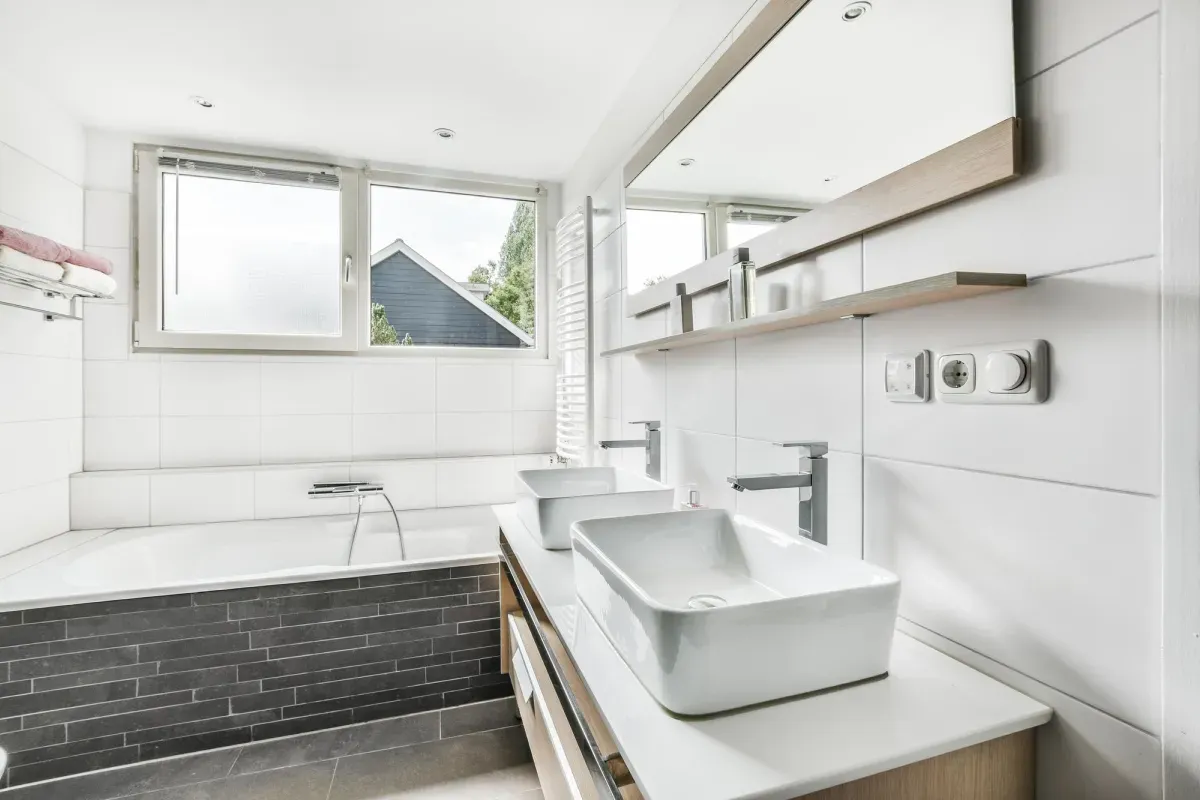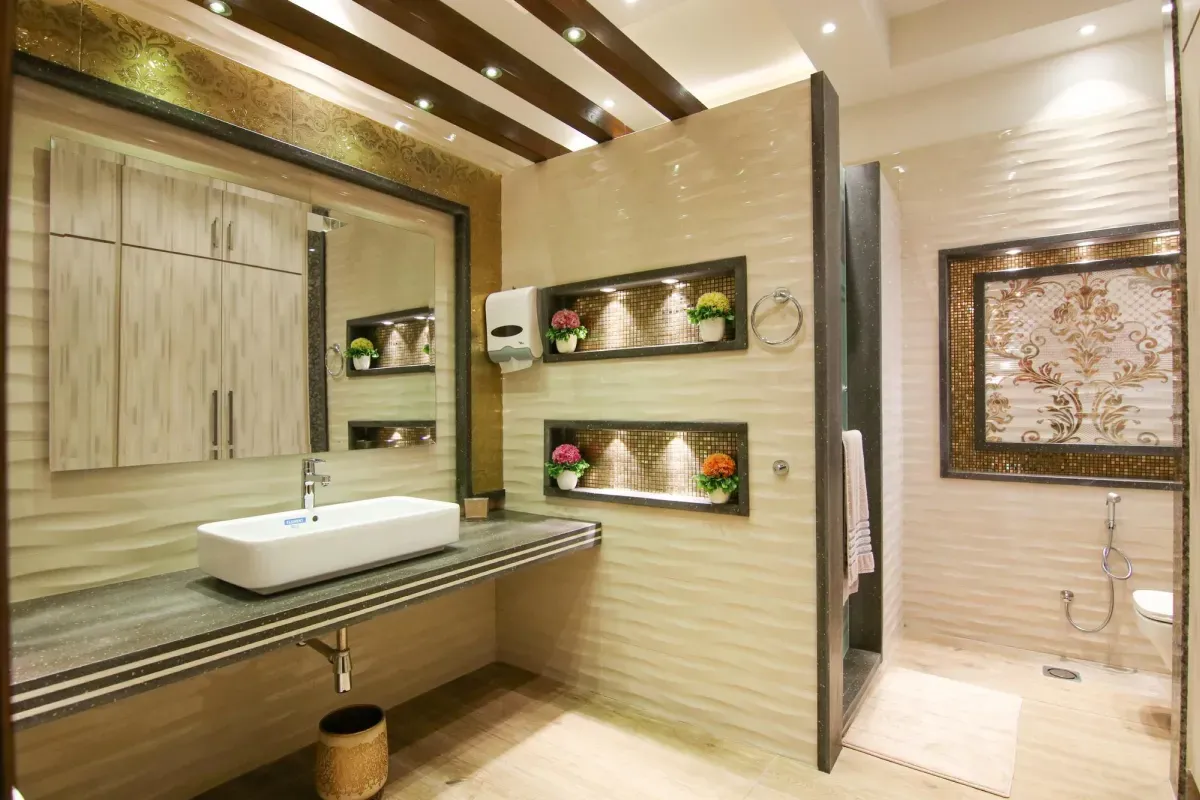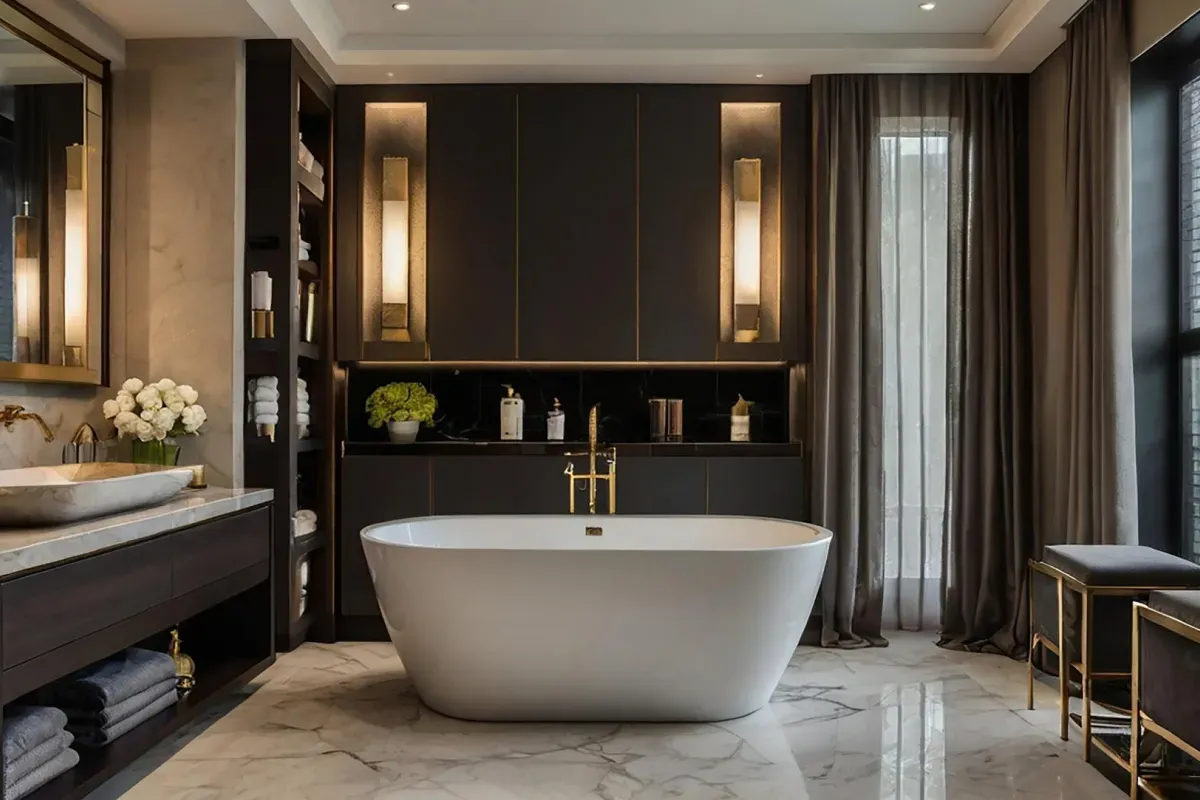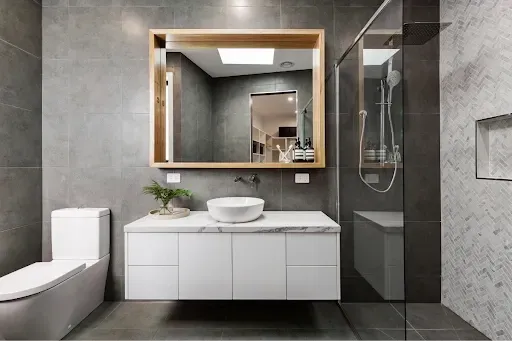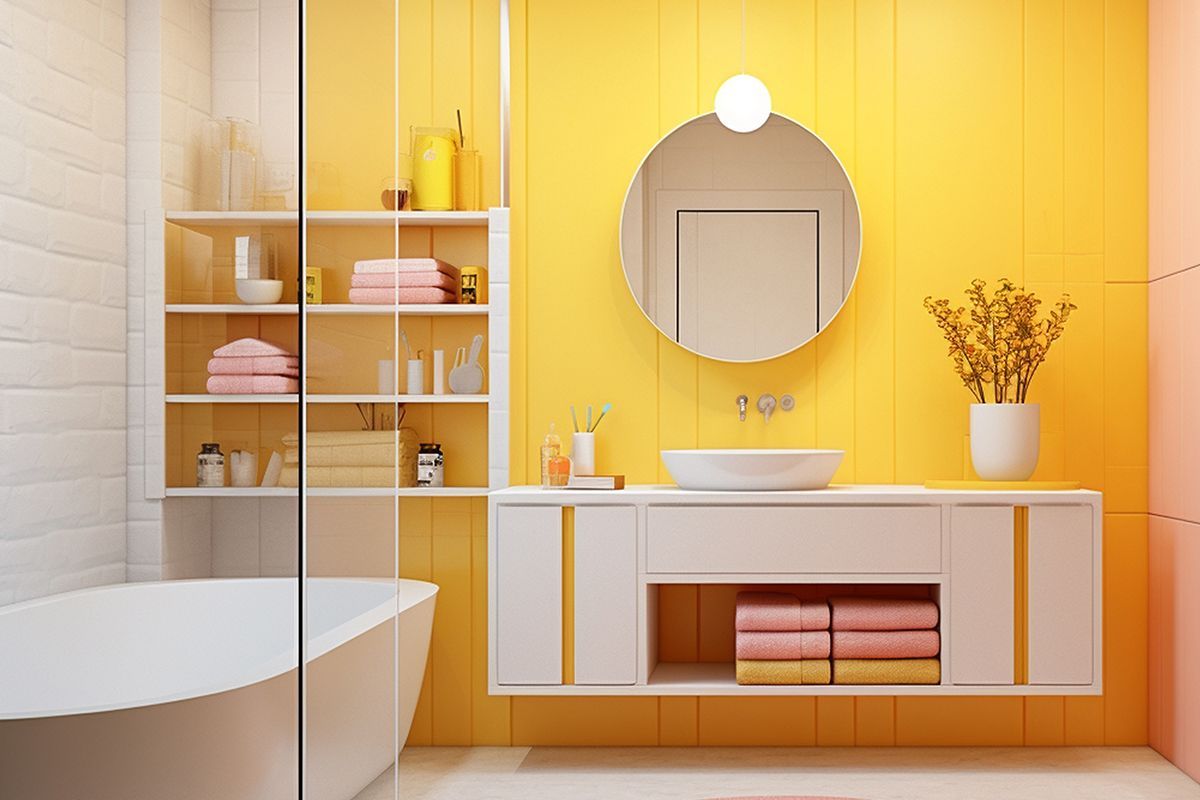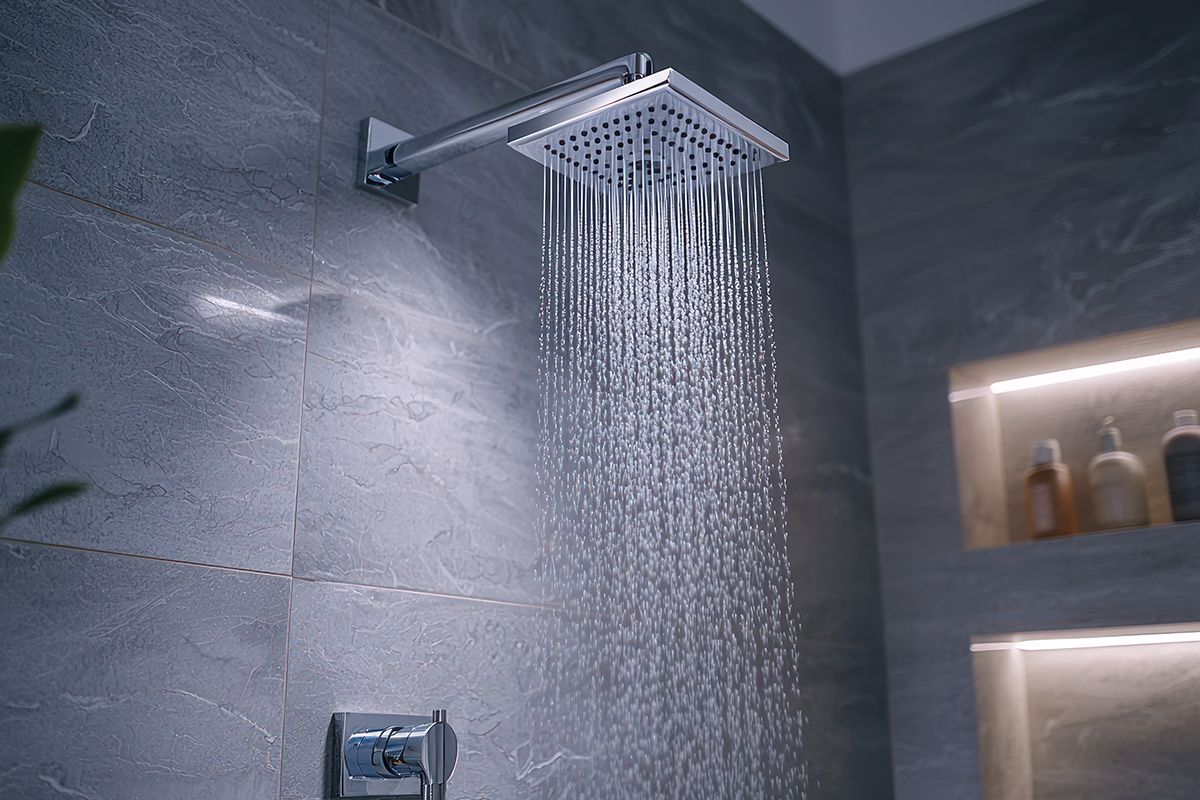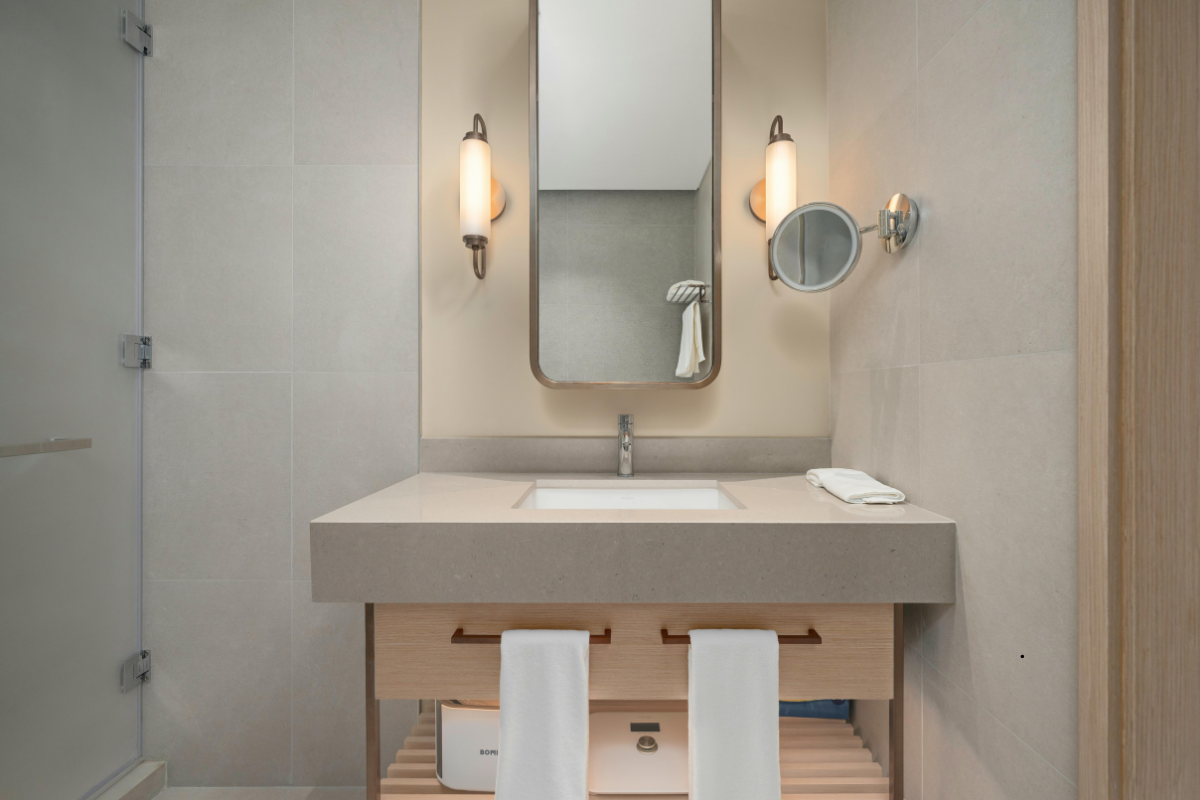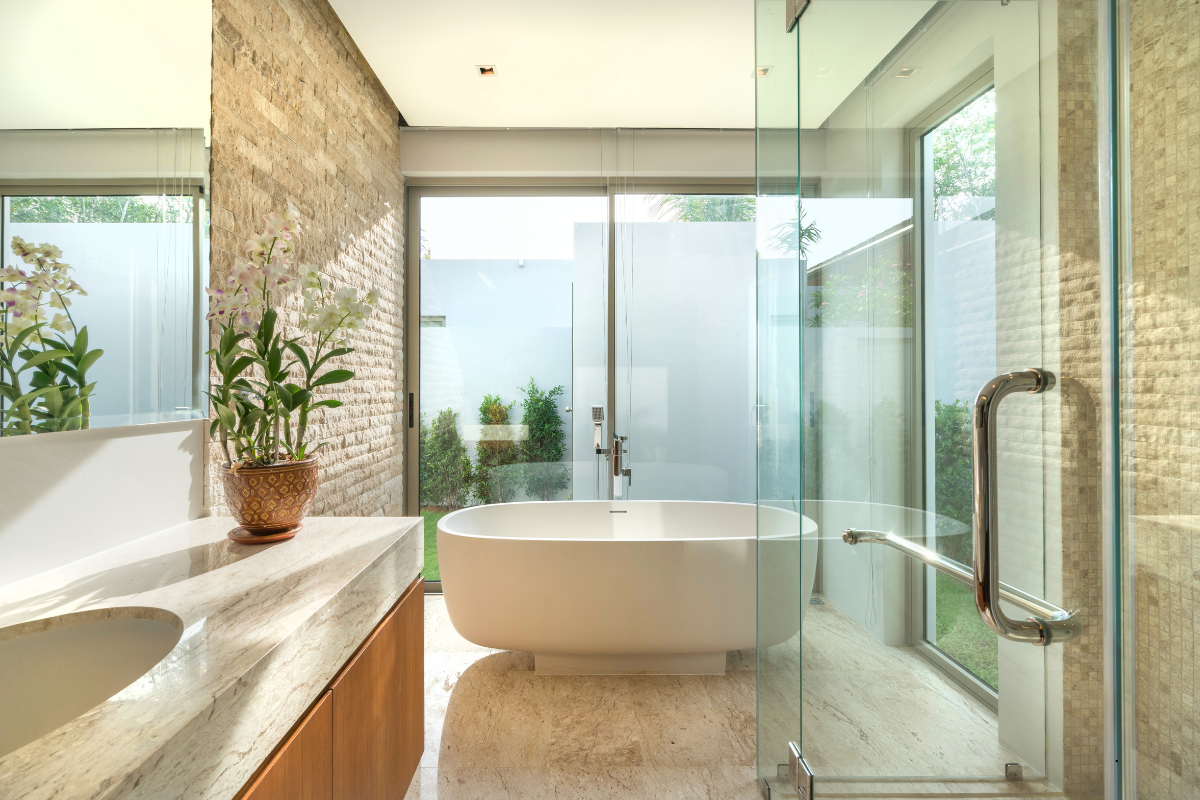Freestanding Bathtub vs. Walk-In Shower: Which Is Best?
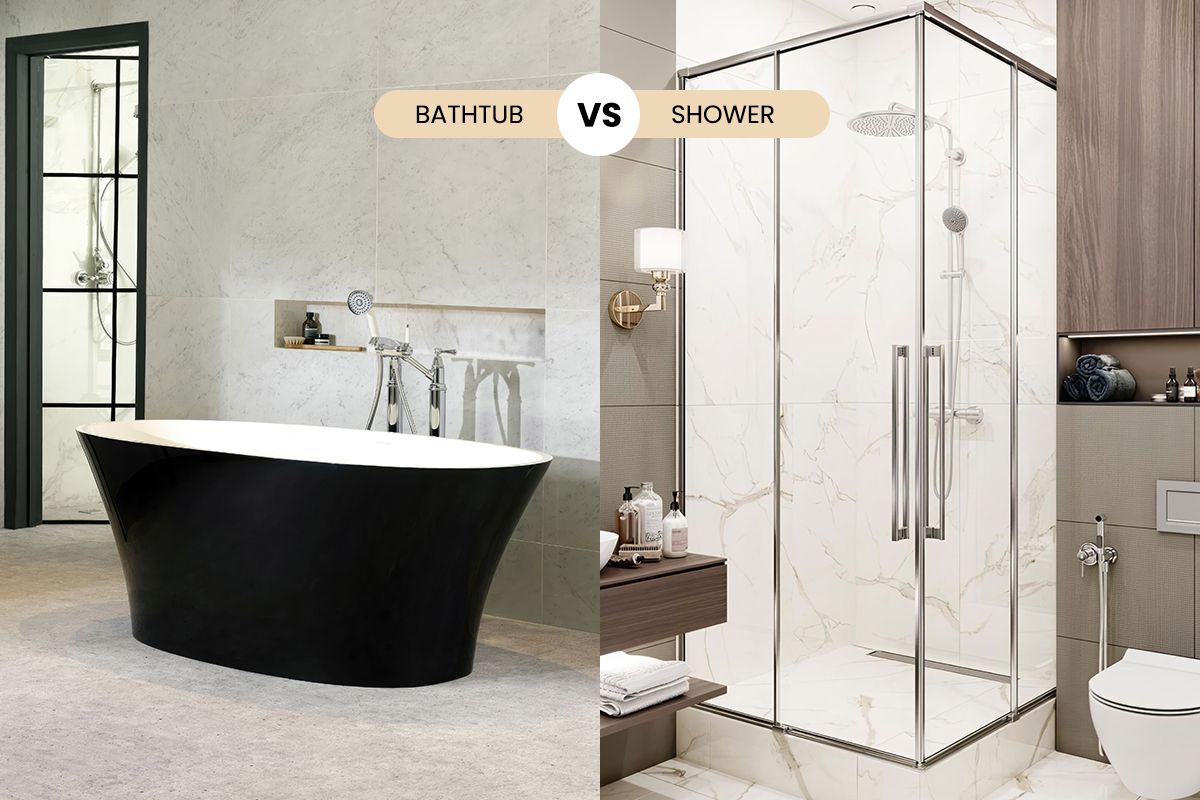
Choosing between a freestanding bathtub and a walk-in shower represents one of the most significant decisions in bathroom remodeling. As a Shower Remodeling company in Loganville, we help homeowners navigate this choice by considering lifestyle needs, space constraints, and long-term goals. Both options offer distinct advantages, and the right choice depends on your specific circumstances, family composition, and personal preferences.
Lifestyle and Usage Patterns
The decision between a freestanding bathtub and walk-in shower should align with ha how you actually use your bathroom space. Consider your daily routines, relaxation preferences, and long-term needs when evaluating these options.
Daily bathing habits play a crucial role in this decision. If you primarily take quick showers for daily hygiene, a luxurious walk-in shower might provide more value than a bathtub that rarely gets used for soaking.
Relaxation preferences matter significantly for homeowners who view their bathroom as a personal retreat. Those who enjoy long, relaxing baths will find more satisfaction in a beautiful freestanding tub, while others prefer the invigorating experience of a well-designed shower.
Family composition affects functionality needs. Families with functionally impaired individuals often benefit from bathtubs for easier bathing routines, while empty nesters might prefer the convenience and safety of walk-in showers.
Before checking which bathing option fits current styles, check out these
latest bathroom remodeling trends first .
Space Considerations and Layout
Your bathroom's size and configuration significantly influence which option will work best and provide the most satisfaction.
Available square footage determines feasibility for each option. Freestanding tubs require adequate clearance on all sides, while walk-in showers can be designed to fit various space configurations more flexibly.
Ceiling height affects the visual impact of freestanding tubs, which can appear cramped in rooms with low ceilings but create dramatic focal points in spaces with adequate vertical clearance.
Traffic flow through the bathroom influences placement options and overall functionality. Walk-in showers often integrate more seamlessly into bathroom layouts, while freestanding tubs require dedicated floor space that affects circulation patterns.
Freestanding Bathtub Advantages
Have a look at the following advantages that a freestanding bathtub serves:
Luxury and Aesthetic Appeal~
Freestanding bathtubs serve as stunning focal points that elevate bathroom design while providing unmatched luxury experiences.
Visual impact from freestanding tubs creates dramatic design statements that can transform ordinary bathrooms into spa-like retreats. These fixtures command attention and establish the overall design tone for the entire space.
Material variety offers extensive customization options including cast iron, acrylic, sto,ne, and copper tubs that complement different design styles from traditional to ultra-modern.
Placement flexibility allows positioning away from walls for maximum visual impact, though this requires careful planning for plumbing access and structural support.
Relaxation and Wellness Benefits
The therapeutic benefits of soaking in a freestanding tub provide compelling reasons for choosing this option.
Deep soaking capability allows full-body immersion that promotes relaxation, stress relief, and muscle recovery. Many freestanding tubs offer deeper soaking depths than built-in alternatives.
Hydrotherapy options including air jets, whirlpool sy, stems, and chromotherapy lighting can transform bathing into therapeutic experiences that promote physical and mental wellness.
Meditation and mindfulness opportunities arise from the ritual of drawing a bath and taking time for personal reflection and relaxation.
Property Value Enhancement
Freestanding bathtubs often contribute positively to home value, particularly in luxury markets and master bathroom suites.
Luxury marmalade makes freestanding tubs attractive to buyers seeking high-end amenities and spa-like experiences in their homes.
Design statement value creates memorable impressions that can differentiate your home in competitive real estate markets.
Timeless appeal of quality ensures lasting value that transcends temporary design trends.
Walk-In Shower Benefits
Walk-in showers offer space efficiency, safety, and modern-day convenience. Have a look at the following advantages:
Practical Daily Functionality
Walk-in showers excel in providing efficient, convenient bathing experiences that align with modern lifestyles.
Time efficiency makes walk-in showers ideal for busy schedules and quick daily routines. No waiting for tubs to fill or e—e-noded cleanup time required.
Water conservation through efficient showerheads and shorter bathing times can significantly reduce water usage compared to regular tub baths.
Easy maintenance with fewer surfaces to clean and no tub basin to scrub makes walk-in showers more convenient for ongoing upkeep.
Safety and Accessibility
Walk-in showers provide superior safety features that benefit users of all ages and abilities.
Slip resistance through textured flooring, grab bars, and non-slip treatments creates safer bathing environments, particularly important for elderly which is family members.
Barrier-free access eliminates the need to step over tub edges, reducing fall risks and accommodating mobility aids when necessary
Universal design principles make walk-in showers adaptable to changing needs over time, supporting aging-in-place goals.
Space Optimization
Walk-in showers often make better use of available space while providing generous bathing areas.
Flexible sizing allows walk-in showers to fit various space constraints while maximizing usable bathing area within available square footage.
Storage integration through built-in niches, corner shelves, and recessed storage provides convenient organization without consuming additional floor space.
Visual expansion created by glass enclosures and seamless designs can make bathrooms appear larger and more open.
Design and Aesthetic Considerations
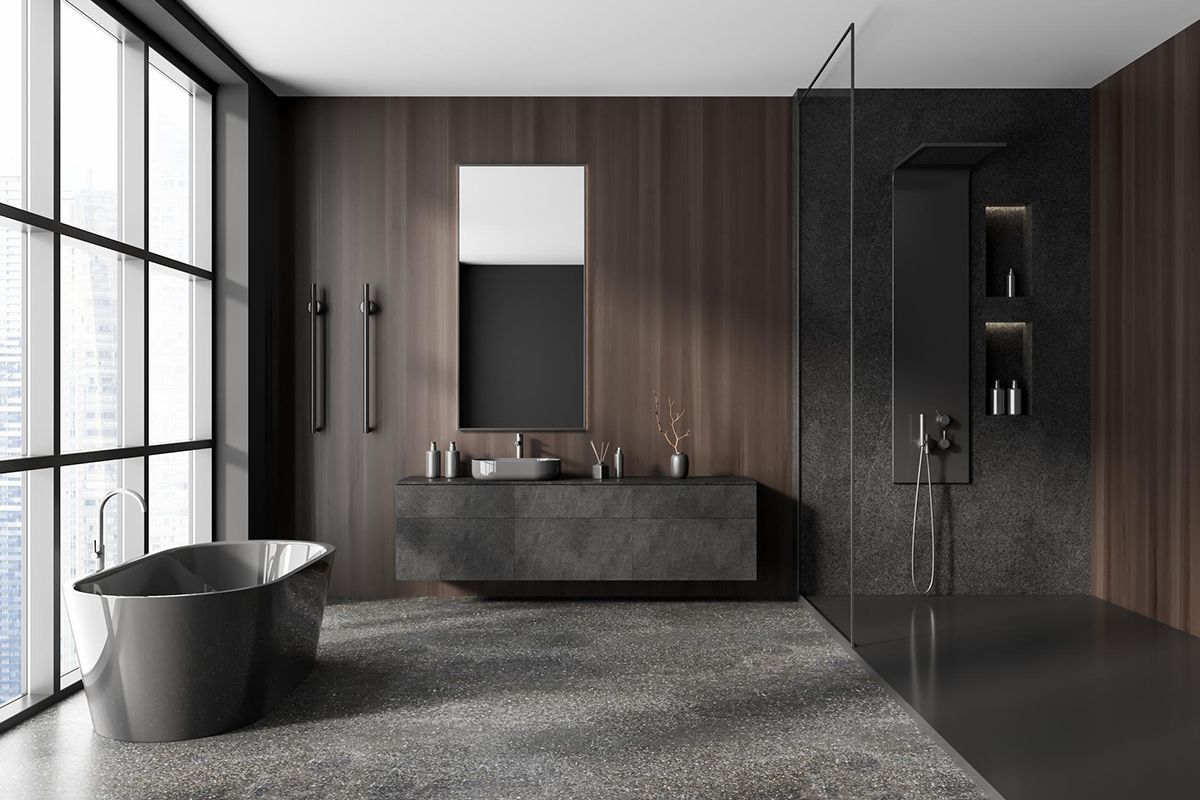
Style Integration
Both freestanding tubs and walk-in showers can complement various design styles, but each offers different aesthetic opportunities.
Contemporary design often favors clean-lined walk-in showers with minimal hardware and seamless glass enclosures that create modern, sophisticated appearances.
Traditional aesthetics may benefit from classic freestanding tub styles like clawfoot or pedestal designs that serve as period-appropriate focal points.
Transitional approaches can incorporate either option depending on specific design goals and the desired balance between traditional and contemporary elements.
Material and Finish Options
The choice between tubs and showers affects material selection and finish coordination throughout the bathroom.
Tile and stone applications differ significantly between tub and shower installations, with walk-in showers offering more extensive surface area for dramatic material displays.
Fixture coordination requires different approaches for tub fillers versus shower systems, affecting overall design cohesion and budget allocation.
Hardware integration varies between tub and shower installations, influencing choices for towel bars, grab bars, and other bathroom accessories.
Practical Installation Considerations
Installation logistics, like plumbing and structural needs, impact your final decision.
Plumbing Requirements
The plumbing needs for freestanding tubs and walk-in showers differ significantly and affect installation complexity and costs.
Freestanding tub plumbing often requires floor or ceiling-mounted supply lines and may need drain relocation depending on tub placement. This complexity can increase installation costs substantially.
Walk-in shower plumbing typically integrates more easily with existing supply lines and drainage systems, potentially reducing installation complexity and expense.
Water pressure considerations affect performance for both options, but shower systems often require higher pressure for optimal function, particularly with multiple shower heads or body sprays.
Structural Requirements
Both options may require structural modifications, but the requirements differ significantly.
Floor reinforcement may be necessary for heavy freestanding tubs, particularly cast iron or stone models that can weigh several hundred pounds when filled.
Drainage modifications for walk-in showers might require floor slope adjustments and waterproofing systems that ensure proper water management.
Ventilation needs vary between options, with enclosed shower areas potentially requiring more robust exhaust systems to manage moisture effectively.
Cost Analysis and Budget Planning
Compare initial and long-term costs to make a financially sound remodeling decision.
Initial Investment Comparison
The upfront costs for freestanding tubs versus walk-in showers vary significantly based on specific choices and installation requirements.
Fixture costs range widely for both options, with basic models starting around similar price points but luxury versions varying dramatically in cost.
Installation expenses often favor walk-in showers due to simpler plumbing requirements and fewer structural modifications needed.
Supporting infrastructure costs including flooring, electrical, and ventilation, may differ between options depending on specific design choices and existing conditions.
Long-Term Value Considerations
Consider ongoing costs and value retention when making your decision.
Maintenance requirements generally favor walk-in showers due to simpler cleaning and fewer components that can require repair or replacement.
Energy costs for heating water may favor showers due to lower water volume requirements, though this depends on usage patterns and efficiency of fixtures.
Resale value impact varies by market and buyer preferences, with luxury markets often preferring freestanding tubs while practical buyers may favor walk-in showers.
Hybrid Solutions and Alternatives
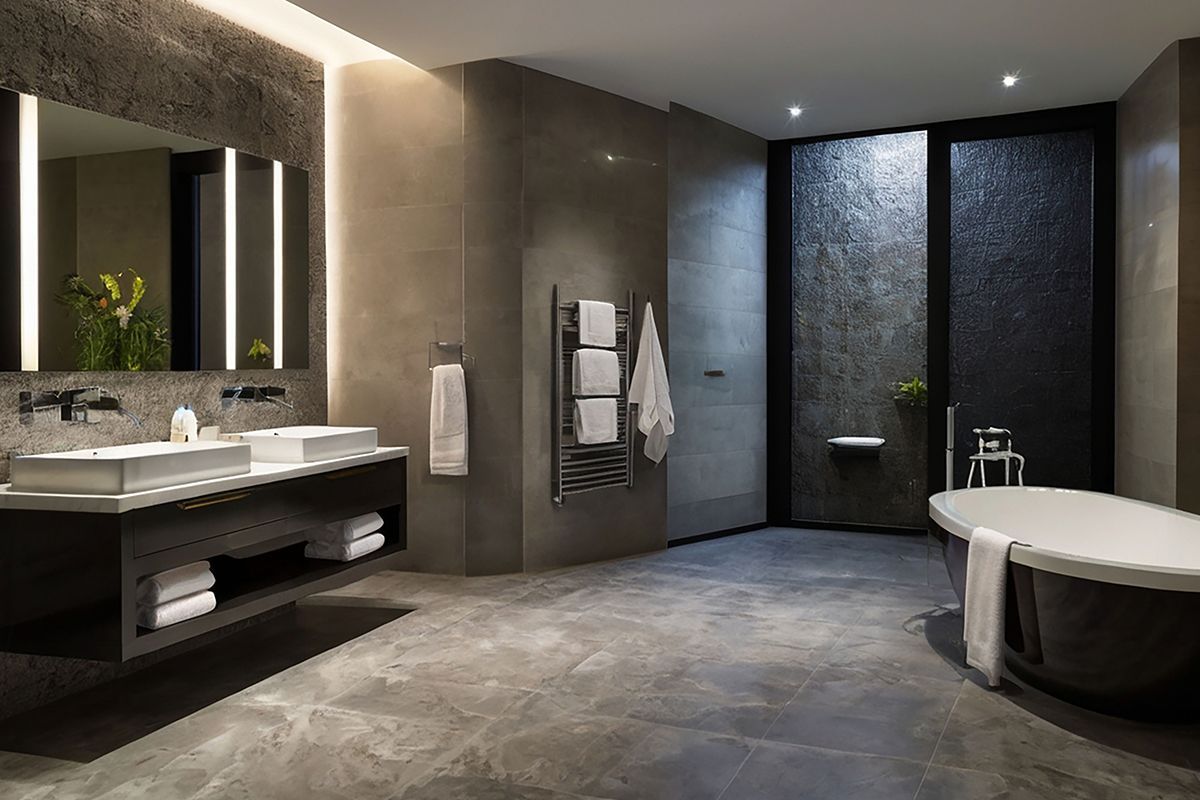
Combination Approaches
Some bathroom layouts and family needs benefit from incorporating both bathing options.
Separate tub and shower installations provide maximum flexibility but require adequate space and budget for both fixtures.
Tub-shower combinations offer compromise solutions, though they may not provide the full benefits of either dedicated option.
Phased installations allow starting with one option and adding the other during future renovations as needs or space availability change.
Creative Space Solutions
Innovative design approaches can maximize functionality even in challenging spaces.
Compact freestanding tubs designed for smaller spaces can provide soaking experiences without overwhelming limited square footage.
Corner shower installations maximize bathing area while minimizing space consumption in tight bathroom layouts.
Multi-level designs can incorporate both options through creative use of vertical space and platform installations.
Making Your Decision
Weigh all factors carefully to choose a solution that fits your needs, space, and budget.
Evaluation Framework
Use a systematic approach to evaluate which option best serves your specific needs and circumstances.
Priority ranking of factors like safety, luxury, space efficiency, and maintenance requirements helps clarify which option aligns better with your goals.
Future planning considers how your needs might change over time and which option provides better long-term satisfaction.
Budget allocation ensures that your choice fits comfortably within your overall bathroom remodeling budget while providing desired functionality.
Professional Consultation Benefits
Working with experienced bathroom remodeling companies helps ensure optimal decisions and implementation.
Design expertise helps visualize how each option will work in your specific space and with your overall design goals.
Technical knowledge ensures that installation requirements and potential challenges are adequately addressed in planning, and insights from professionals who have completed similar projects provide valuable perspective on long-term satisfaction and performance.
Conclusion
The choice between a freestanding bathtub and a walk-in shower depends on your unique combination of lifestyle needs, space constraints, budget considerations, and personal preferences. Neither option is universally superior – the best choice is the one that aligns with your specific circumstances and goals.
At PHD Bathroom Remodeling in Loganville, we help homeowners evaluate these options thoroughly while considering all relevant factors. Our 30 years of experience provides valuable insights into appropriate choices that perform over time and which solutions offer the most excellent long-term satisfaction. Most amazing and adequate, making the right decision lies in honest assessment of your needs, realistic evaluation of your space, and careful consideration of how your choice will serve you for years to come. Whether you choose the luxury and relaxation of a freestanding tub or the practicality and safety of a walk-in shower, professional installation ensures optimal performance and satisfaction.
Ready to explore your options and make the best choice for your bathroom remodel? Contact PHD Bathroom Remodeling at (844-743-2284) to discuss your needs and learn how our expertise can help you create the perfect bathroom solution. Our comprehensive approach ensures that your choice provides lasting satisfaction and enhances your daily life for years to come.

